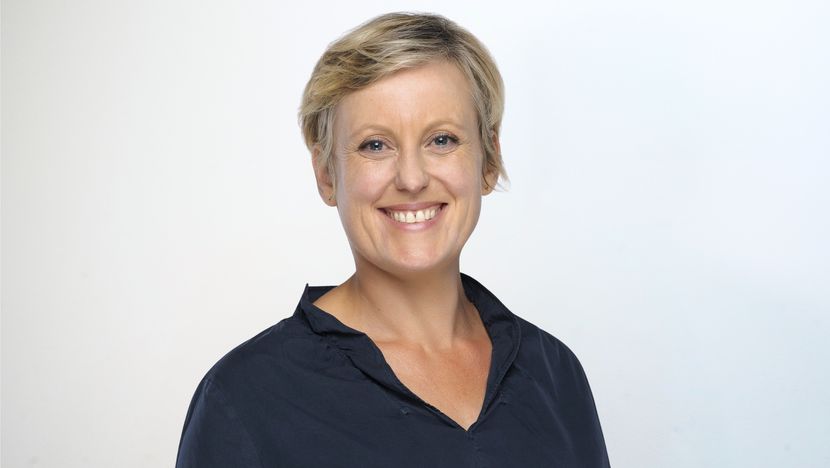
Joanna Sutherland: Bringing Experience and Insight to Commonwealth Sport
With a career spanning Olympic, Paralympic and Commonwealth events, Joanna Sutherland joins the Sports Committee to help guide the future of sport across the Commonwealth.
With more than 25 years of international experience across the Olympic, Paralympic and Commonwealth movements, Joanna Sutherland joins the CGF Sports Committee, bringing significant knowledge of global sport and International Federations to support the Committee’s work and support the future direction of the Games.
When Sutherland learned about the opportunity to join the Sports Committee, she was already familiar with the organisation’s vision and global impact. “I’ve been following Commonwealth Sport for a while. I knew Hilary Atkinson, one of the outgoing members, so I had a chat with her and she said ‘Go for it.’
“On the interview panel were the likes of Sandra Osborne SCM, SC, Ann-Louise Morgan and Helen Phillips; seeing their CVs and hearing what they had achieved was incredibly inspiring. I remember thinking I hadn’t done very much compared to them.”
Despite her modesty, Sutherland’s professional record tells a different story. From Olympic basketball courts to the Paralympic field of play, she has spent her career planning and delivering some of the world’s biggest sporting events. Most recently, she served as Senior Sport Cluster Manager for the Paris 2024 Olympic and Paralympic Games, overseeing the delivery of 18 sports, including technical coordination, infrastructure, logistics and team management.
“I have a lot of experience working with International Federations,” she says. “They all have their differences, but they also share similar challenges and priorities. It is about understanding that and how it can be translated into what Commonwealth Sport is trying to achieve. I come with that experience, and with an overall understanding of running major and multi-sport events.”
For Sutherland, the Commonwealth Games holds a special place in sport’s wider ecosystem. “Coming from Scotland, I know how important the Commonwealth Sport Movement is for Athletes from nations and territories that may not get a chance to compete at the Olympic or Paralympic Games. It also includes sports that are not part of the Olympic or Paralympic Games. That makes it so valuable.”
It’s about more than competition; it’s about creating pathways and building confidence across the Commonwealth.
She believes the programmes that underpin Commonwealth Sport’s development work are equally vital. “The initiatives that support the development of Athletes, Coaches and administrators are really important. It’s about more than competition; it’s about creating pathways and building confidence across the Commonwealth.”
Asked how she plans to contribute to the Committee’s work, Sutherland reflects on the value of experience. “I think it is about leaning on what I have learned over the past 25 years, understanding what is manageable and where priorities lie. Each International Federation has its own relationships and values, and you have to understand what is non-negotiable and where there is room to adapt. Sometimes what they want to push aligns perfectly with what Commonwealth Sport is aiming for. It’s about identifying those shared goals.”
She adds that collaboration begins with communication. “It sounds so simple, but it really is about understanding the reasons behind decisions, why something needs to be done and what the challenges might be if it isn’t. Once everyone understands that, you can find solutions together. Communication also means trust. We all bring different skills and experiences, and it’s about respecting and trusting those within the Committee.”
With the Sports Committee helping shape future Games programmes, Sutherland is clear that accessibility must remain a guiding principle. “It’s about making sure the sports on the programme are accessible to young Athletes across the Commonwealth. We also need to consider the impact those sports have. There can be variation between Games, depending on where they are held, but you can be different and still be strong.”
She points to innovations such as 3x3 Basketball and 3x3 Wheelchair Basketball as examples of evolution done right. “Times change, and we need to adapt with them. Bringing in those formats has opened up opportunities for so many more countries that might not have had the structure to bring a full team. It makes the Games more inclusive and exciting.”That sense of balance, she believes, will be crucial heading into 2026 and beyond. We have to do what is best for the Games, keeping them alive, relevant and forward-looking.”
Sutherland’s connection to the Commonwealth Games runs deep. “One of my earliest memories was going to watch the Badminton Doubles final in Edinburgh in 1986. It was Scotland against England, held in Hall One at the old Meadowbank Sports Arena. It has since been replaced and revamped, but that experience of live sport was incredible. My family has always been involved in sport, so there was never really an option not to be.”
When it comes to legacy, her focus is on people. “We often think of legacy in terms of infrastructure, but for me it is also about the Coaches and Officials who play a huge role. They gain experience and knowledge at a major event, then take that back to their country and share it. The legacy filters down through Athletes, Coaches, management staff and Officials. That’s where the real impact lies.”
What comes across in speaking with Sutherland is her genuine passion for sport. She feels privileged that what began as a hobby became a lifelong career. Now, in this new position, she hopes to give something back. Just as legacy filters down through those who gain experience, she hopes her own knowledge and insight will do the same, helping shape a stronger, more connected Commonwealth Sport Movement.